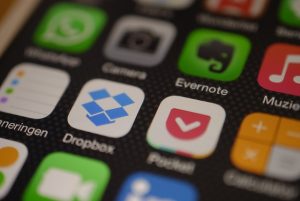Freemium is a business model in which the base product is offered for free, while the full product and extensions are chargeable. In the case of computer games, it is known as “Free To Play“.
Definition of Freemium
Freemium is an artificial mix of the two words “free” and “premium” and describes a kind of online services where the basic features are available for free. Any additional content or features, which go beyond that basic functionality, are charged. Freemium is a business model that aims to attract customers by first attracting them to a platform through free services and then offering them premium services that contain more functionality and have to be paid for.
Origin of freemium models
Since the commercialization of the Internet in the mid-1990s, the Freemium business model has been a common way of gaining revenue from essentially freely available online services. Early examples are Netscape Communications or in Germany WEB.de. For software products, an analog model is even older and is now very prominent: Adobe Systems Inc. with the free Acrobat Reader to read PDF files. A creation of PDF files is not possible with the software. For this purpose the company offers the paid program Adobe Acrobat.

A large number of services like apps are offered with a Freemium model
Nowadays many services like Pandora, Evernote, Mailchimp, Xing, Spotify, Flickr or Skype use this model. For the most part, the additional paid content addresses fixed root users who are already intensively using the basic offer. The proportion of users willing to pay is usually very low.
Venture Capitalist Fred Wilson described the Freemium model on March 23, 2006 as follows: “Offer your service for free, possibly with commercials or maybe not, effectively win many customers through word of mouth, affiliate, search engine placement, and so on, and then offer additional services or an enhanced version of your service to your customer base for an additional charge. ”
The difference between free and Freemium Software
In general, there hast to be a differentiation between free and fully functioning software on the one hand and free but limitedly usable software on the other. While users of free software receive the complete product, including the rights to view and change the source code, with the Freemium version they only receive an excerpt from the range of services offered by the software and services and never have any rights whatsoever, for example to change the source code or just to see it. The differences between free basic version and paid premium version vary by product.
Area of application
Email-Provider
Some E-mail account providers are building their business model based on the freemium principle on the Internet. They offer free registration of e-mail addresses. The free offer, however, includes only limited storage space. If the user wants to increase his storage volume, he has to pay for it.

Online games are often used as Freemium version
Games
The Freemium model is increasingly being used in games where you can buy comfort features, benefits or additional content.
Software
- Features: Basic and Premium versions differ in functionality. An example of this is Skype. In the free version, among other group video calls are not available.
- Capacity: The full functionality is initially available in the basic version. During use, the usage (eg duration, bandwidth, file size) is measured. After reaching the volume limit, the product can only be used to a limited extent. An example of this is the SQL Server Express. In the Freemium version, the size of databases is limited to 10 GB.
- Customer group: The full product is offered free of charge to certain customer groups. An example of this is the Dreamspark model from Microsoft. Selected student groups are offered the software for free.
Hardware
To sell Hardware, the Freemium business model is also used. The provider publishes plans, parts lists and tutorials free of charge, often as free hardware, with the aim of creating an online community that in turn contributes to improving the product (crowdsourcing). Once the necessary attention and needs have been created, the supplier offers kits or finished products based on them. The target group are customers who do not have the time or skill to assemble the product themselves, but want to own it and are prepared to pay for it. Chris Anderson follows this business model with his company DIY Drones and describes it in his book “Free”.
Books

Journals & Newspapers
In December 2013, the Federal Association of German Newspaper Publishers (BDZV) announced that meanwhile 70 newspaper titles in Germany had set up paid content models on their websites. 71 percent of the newspapers rely on the freemium version. Here, the editors decide which content is free and which are made available for a fee. Alternative payment models are the metered model, where a certain number of posts per month can be read for free. All further calls for contributions are subject to a charge.
The Freemium model and Advertising
There are services provided- especially in the are of online games – in which the basic product already offers the complete functionality and is financed by advertising. Users can turn off the impressions for a fee. Even with mobile services for smartphones and tablets, app providers build their business model through in-app purchases on the Freemium model.
Conclusion
The sometimes painful restrictions of the cost free, but not freely usable software has led to terms such as “Expireware”. In contrast to software products, where this model has a negative connotation due to the often unusable software, Internet services on the Freemium model are useful in private or small business environment.












